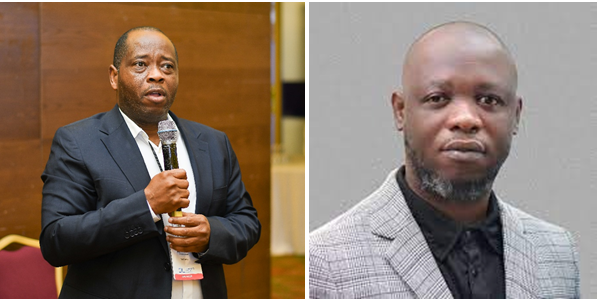As governments ponder ways to increase the value and quantity of trade across Africa to increase value capture and retention, stakeholders are establishing pathways and building relationships to give and sustain life to Africa’s integrated market agenda.
The Welding Federation (TWF) and Trans Africa Railway Connection (TARC) Ltd have signed a Memorandum of Understanding (MOU) on African content management in the delivery of welding and related services on the TARC project.
TWF is a pan-African organisation headquartered in South Africa which aims to domesticate and domicile welding capacity within the African region to serve the need of its manufacturing industries.
TARC is a trans-Africa railway connection project that connects corridors across 32 African countries with a job creation opening of an average 100,000 opportunities (direct and indirect) across all connected corridors.
In addition to the impressive employment openings to be created by TARC, the infrastructure also provides a huge investment opportunity for investors with guaranteed sustainability on Return on Investment (ROI) across medium- and long-term durations as trade in Africa deepens.
According to Chukwuma Magnus Nwakama, Project Director, TARC, the MOU signed by Christian R. Gutzwiller, Chairman of TARC, and Ayo Adeniyi, Executive Director of TWF, in a closed-door session, is a reflection of progress in the actualisation of African Continental Free Trade Area (AfCFTA) objectives and major steps toward attainment of African Union’s Agenda 2063.
Dr Hamed Abdel-Aleem, the newly-elected President of The Welding Federation expressed delight in the development.
He said, “TWF has really good people with character, technical depth and vast exposure. Most importantly, people driven by a uniform quest to make impact that will improve the situation in Africa. We have made good progress working on a lot of things and building the necessary relationships across all channels. Africa has much to benefit from the architecture that we are building and hope to sustain. The TWF-TARC MOU is there a testament to the tireless efforts by members of the board to deepen connection and capabilities to see increased activities that will aid the creation, capturing and distribution of opportunities across Africa’s manufacturing vale chain to Africans.”
The MOU between TWF and TARC thrusts on TWF the responsibility for the coordination of all welding personnel certification, welding inspection, audit, and accreditation of manufacturers welder services on the project.
This aligns with the cardinal purpose of TWF which is to see increased African content utilization and optimization across value chain openings in Africa’s manufacturing industries.
Completed, TARC is a 20 million metric ton steel project that will involve the application of both generic and specialised welding processes in the construction and installation of thousands of kilometres of railway tracks and coaches across key corridors to boost trade of products and services.
It is hoped that governments across all African transit corridors will hurriedly give the necessary approvals where necessary for commencement of initial activities on this project for the benefit it guarantees.
Likewise, TWF also looks forward to engaging the African Union and other regional associations or communities on how it intends to drive a framework that will see increased participation through technical collaborations between manufacturers on the TARC project and other projects across Africa’s energy and mining space.
Implementation of this MOU will see manufacturers and service providers with verified capacity provide a combined target of sixty percent fabrication activities on the project, both at the construction and operational maintenance phase of the project.
TWF hopes to drive a combination of quantitative and qualitative mix in the services thrust upon manufacturers and service providers to establish capacities for subsequent railway projects across Africa.
“Welding is a specialist field that demands verified competence. TWF will set up a specific committee to work with manufacturers to verify capacity appropriateness and provide bridges where required to see increased participation on the project.
“The target will also include providing frameworks for increased collaboration between manufacturers across all levels to achieve and surpass benchmark expectations,” a statement obtained by The Herald read in part.

